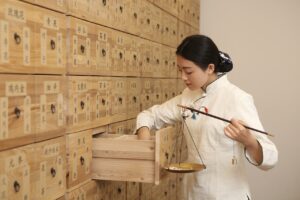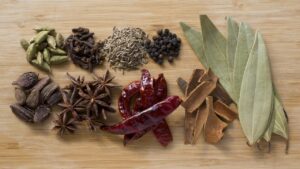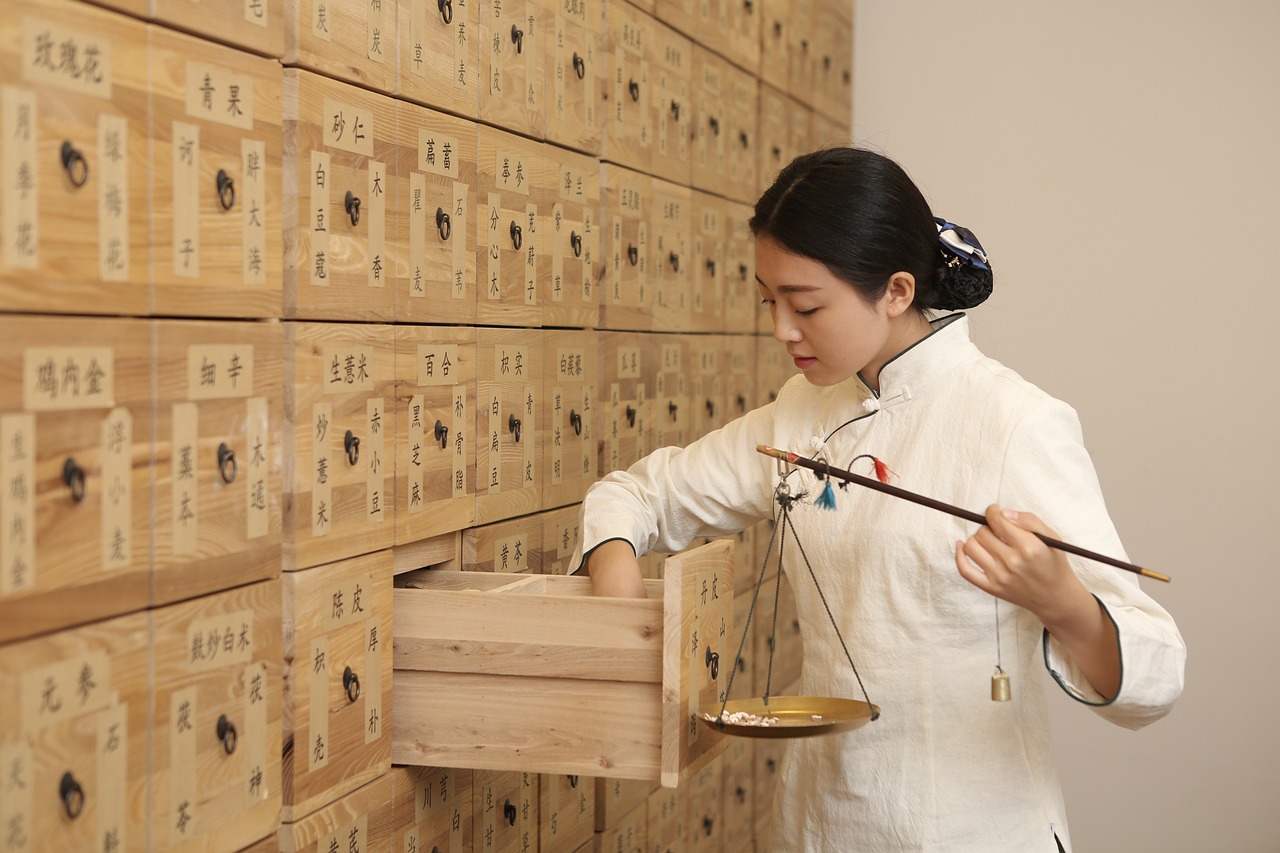Autumn in Chinese Medicine is a time of looking inwards, taking on board and clearing whatever we have gained in the previous seasons. Autumn is associated with the Lungs, Large Intestine, and the Metal Element. The Metal Element deals with transformation, and to transform we need to understand what’s serving us and what isn’t any longer, what to keep and what to let go of. As we approach winter, which is connected to the Water Element, we have to be ready for a time of stillness and hibernation and in order to do that, we need to be grounded within ourselves to ease into that stillness. Autumn allows for that process to happen.
 As we transition from summer into Autumn, it isn’t uncommon to see a rise in allergies or any other Lung-related issues at this point. In Traditional Chinese Medicine, different seasons are associated with different climate factors that directly affect the organs they are associated with.
As we transition from summer into Autumn, it isn’t uncommon to see a rise in allergies or any other Lung-related issues at this point. In Traditional Chinese Medicine, different seasons are associated with different climate factors that directly affect the organs they are associated with.
So for example, summer is associated with heat and the Heart, so it’s common to see an increase in cases of insomnia, related to heat disturbing the Heart ( which controls the head, sleep, mental abilities and similar).
Autumn is connected with dryness and the Lungs and so, it’s not unusual to have allergies or sinus problems that present with dryness. Typical seasonal ailments that I see in my clinic often include allergies, common colds, sinus problems, skin problems, changes in bowel movements, fatigue, and depression with an increase in sadness.
As each season passes with its corresponding organs and climate factors, there are transition times that blend one season into another, creating a mixture of possible ailments and illnesses during that period. So while we might associate the Autumn with dryness, it’s also possible to see some dwindling heat left over from the summer.
On an emotional level, Autumn corresponds to grief in Chinese Medicine. Yin organs (in this case lungs) are typically paired with an emotion, a season, a color, taste and many other correspondences in Chinese Medicine. As the Autumn is associated with the Lungs, its paired emotion is grief, the color white, and a pungent or slightly spicy taste. It’s not unusual for grief to reappear at this time because the Lungs helps us through breathing, we can process old emotions and practice releasing them.
How to Nourish your body in Autumn
 Traditional Chinese Medicine tells us that pungent foods are best for Autumn as they help with the cleansing and protection of the Lungs and Large Intestine. Pungent foods don’t have to be spicy to have this effect. The onion family, for example, such as garlic, onion, ginger, horseradish and white peppercorns are a great example of this.
Traditional Chinese Medicine tells us that pungent foods are best for Autumn as they help with the cleansing and protection of the Lungs and Large Intestine. Pungent foods don’t have to be spicy to have this effect. The onion family, for example, such as garlic, onion, ginger, horseradish and white peppercorns are a great example of this.
In addition mucilaginous or moist foods are also important. They help protect and replenish the mucous membranes of the colon and the lungs and also remove old thick mucous deposits, clearing out. These foods include seaweeds and herbs and spices such as flaxseed, fenugreek, and marshmallow root.
my personal favourite food at this time of year are dark green and golden-orange vegetables. These foods tend to be rich in Beta Carotene which also helps protect the mucous membranes. Foods such as carrot, winter squash, pumpkin, butternut squash, parsley, turnip, mustard greens, watercress, and nettles are great sources of beta-carotene. These often make rich, nourishing stews.
Along with eating a balanced, seasonal nutritious diet, keeping warm and breathing more deeply is recommended during this season. With weather changes, keeping the body, especially the lungs warm, will boost the immune system and help prevent or fight off coughs and colds. The breath itself when worked in meditation or qigong sessions can help us let go and release the old, allowing us to be more present.
My love for Chinese medicine and it’s wisdom is based mostly on this seasonal and environmental understanding of what affects the body, but more importantly how to prevent the inevitable disturbances to our wellbeing. By following the seasonal dietary advice, protecting the more fragile seasonally affected organs and working the body with qigong or meditation it brings about a sense of balance, peace and physical and mental wellbeing.
Understanding the season flow of TCM helps me to treat my acupuncture clients and also to have a better



No Comments